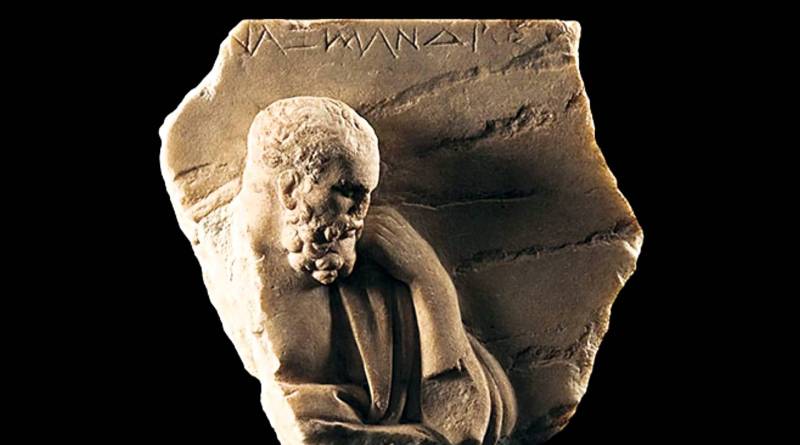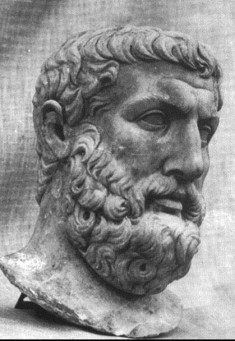Do you seek for 'parmenides additional biography'? You will find your answers right here.
Parmenides was a fifth-century BCE Greek philosopher, belonging to the city of Elea. Under the direction of his instructor, Xenophanes of Colophon, he founded the Eleatic School of philosophy, which classifies truth on the basis of complete logic and rationalness, and does non accept sense experiences as valid.
Table of contents
- Parmenides additional biography in 2021
- Parmenides' being and becoming
- Heraclitus vs parmenides
- Fragments of parmenides
- Parmenides quotes
- Parmenides pdf
- Parmenides theory
- Parmenides death
Parmenides additional biography in 2021
 This image representes parmenides additional biography.
This image representes parmenides additional biography.
Parmenides' being and becoming
 This image shows Parmenides' being and becoming.
This image shows Parmenides' being and becoming.
Heraclitus vs parmenides
 This image illustrates Heraclitus vs parmenides.
This image illustrates Heraclitus vs parmenides.
Fragments of parmenides
 This picture demonstrates Fragments of parmenides.
This picture demonstrates Fragments of parmenides.
Parmenides quotes
 This image demonstrates Parmenides quotes.
This image demonstrates Parmenides quotes.
Parmenides pdf
 This image representes Parmenides pdf.
This image representes Parmenides pdf.
Parmenides theory
 This image shows Parmenides theory.
This image shows Parmenides theory.
Parmenides death
 This image demonstrates Parmenides death.
This image demonstrates Parmenides death.
What did Parmenides say about the unreality of variety?
Parmenides attempted to distinguish between the unity of nature and its variety, insisting in the Way of Truth upon the reality of its unity, which is therefore the object of knowledge, and upon the unreality of its variety, which is therefore the object, not of knowledge, but of opinion.
Where was the hometown of Greek philosopher Parmenides?
It is certain that his hometown was Elea (Latin: Velia )—a Greek settlement along the Tyrrhenian coast of the Appenine Peninsula, just south of the Bay of Salerno, now located in the modern municipality ( comune) of Ascea, Italy.
Who are some of Parmenides most famous thinkers?
Other thinkers, also commonly thought of as Eleatics, include: Zeno of Elea, Melissus of Samos, and (more controversially) Xenophanes of Colophon. Parmenides’ only written work is a poem entitled, supposedly, but likely erroneously, On Nature.
When was Parmenides in his prime and when did he die?
ˈɛliə /; Greek: Παρμενίδης ὁ Ἐλεάτης; fl. late sixth or early fifth century BC) was a pre-Socratic Greek philosopher from Elea in Magna Graecia (meaning "Great Greece," the term which Romans gave to Greek-populated coastal areas in Southern Italy ). He is thought to have been in his prime (or " floruit ") around 475 BC.
Last Update: Oct 2021